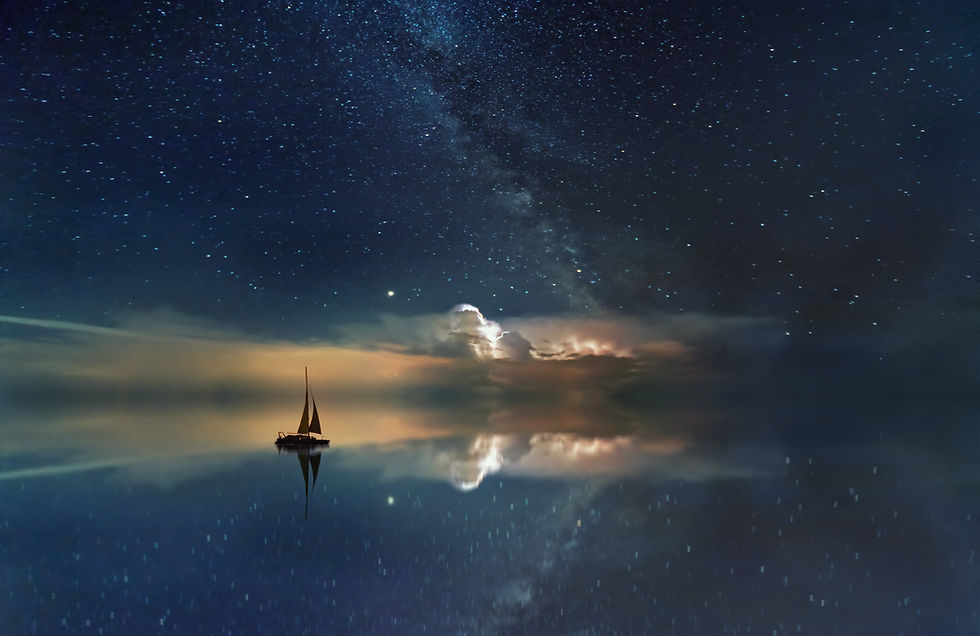CW: This article discusses topics of mental illness and suicide, which could be distressing to some readers.
The Legacy of the Doctrine of Discovery
We pride ourselves on being a civilised society, but what does that really mean? Are we at an advanced stage of cultural and social development? Is it reflected in our laws and policies? Do we show compassion and look after the vulnerable members of society? Do we ‘go the extra mile’ to help others? Do we protect the environment and think about future generations to come? Do we advocate for positive change?
Western society is built on the pillars of colonial empires upheld by narrow-minded ideas of wealth and religion. The doctrine of discovery, promulgated by the Vatican in the 15th Century, claimed that Christians had a biblical right to ‘discover’ and dominate non-Christian lands. It became a doctrine of international law, authorising Christians to pillage the non-Christian communities of the Earth, claiming terra nullius or ‘land belonging to nobody’ to legitimise these heinous actions.
Thus, the Indigenous peoples of the world were ousted from their ancestral lands by European settlers. The land was appropriated for European monarchs, and it was exploited to European standards. This demonstrated a total disregard for the Indigenous peoples, who were deemed inferior to animals. In the Americas and Australia, the Aboriginal nations believe that nobody owns the land, but that rather we are its stewards; we live in reciprocity and have a duty to maintain it so that it can maintain us and future generations.
Claiming Back Their Inheritance
Since the 1980’s Indigenous peoples have been campaigning for their governments to recognise their ancestral land rights. In Canada, the first governor insisted that as the First Nations had never owned land, their land claims could safely be ignored. However, in a landmark case in 1984 (Guerin v the Queen), the government ruled that the Crown has a ‘fiduciary duty’ towards the First Nations of Canada, and it established Aboriginal Title as a sui generis right.
In Australia, the Mabo case produced another landmark ruling in 1992, overturning terra nullius and recognising traditional ownership of the land in the Torres Strait. This set an international precedent, recognising the pre-colonial land interests of Indigenous Australians within common law.
However, in the US, the conquest mentality has been more persistent, despite the country eventually agreeing to the United Nations Declaration on the Rights of Indigenous Peoples in 2007. The tide may have turned now, though, as a recent Supreme Court ruling has set a precedent that should mean that future Indigenous land claims hold more weight.
Despite all this wrangling, the Onondaga Nation and others are using their ancestral wisdom to promote environmentally sustainable land management to heal the damage caused by hundreds of years of mismanagement and greed. To be clear, they are not claiming back the lands for the sake of owning them.
On the contrary, they want to ensure that they are being managed sustainably for generations to come, as Western civilisations have proven to be very short-sighted stewards. In contrast, Aboriginal peoples tend to live in harmony with the Earth, interweaving their intrinsic understanding of nature with a spiritual consciousness. Some believe we come from the stars, and we are just honorary guests on Earth, entrusted with looking after it while we are here. This may resonate with Christians.
Indeed, the Christian values of peace, reconciliation, and restorative justice are mirrored in Indigenous cultures. In fact, these are the values that gave rise to the Iroquois Confederacy, instigated by Hiawatha hundreds of years before the foundation of the United States, which are recorded in a treaty woven into a wampum belt. The Founding Fathers of America were inspired by the federalist principles of the Indigenous government and wanted to incorporate them into the foundations of the new nation. It was to be more than a democracy; it was to be a League of Friendship. The colonies were to maintain their independence whilst providing support for each other if needed.
So what changed? For thousands of years, millions of people shared the land and its resources. They based their social system on an ancient farming method known as “the three sisters”, which are corn, beans and squash grown together and supporting each other thanks to their diversity. The corn takes the nitrogen from the soil, which is replenished by the beans’ roots. The broad, prickly, low-lying leaves of the squash serve as ground cover, reducing the weeds and deterring pests. So, these three plants use each other’s strengths to offset their own weaknesses, enabling all three to flourish.
A Doctrine of Reconciliation
The current problems started with the spiritual ignorance of the Church, and the Bible itself suggests the solution. God wants us all to remove the chains of oppression, share our resources and face our responsibilities, if we want Him to step in and restore us.
A doctrine of reconciliation would repudiate the archaic doctrine of discovery and redefine the relationship between the Indigenous communities and the Settlers. This would be like social Sertraline. Positive discrimination and affirmative action are not enough to bridge the chasms in society exacerbated by the deep intergenerational wounds in the Indigenous communities. They are currently being deliberately oppressed by anachronistic racist laws, which are in fact a product of a legal fiction.
If we truly are a civilised society that respects the dignity of every human being, and advocates for the rights of vulnerable members of society, then the Aboriginal communities need to be given back the power of self-determination. We need to reflect on how the doctrine of discovery led to the pillaging of their resources and question the legitimacy of the current hegemonic dominance. We need to learn to steward the Earth's resources sustainably and share them rather than greedily owning them. In order to heal the wounds, we have to provide narratives that tell the truth about the colonial history as it really happened and start sharing our stories.



Kommentare